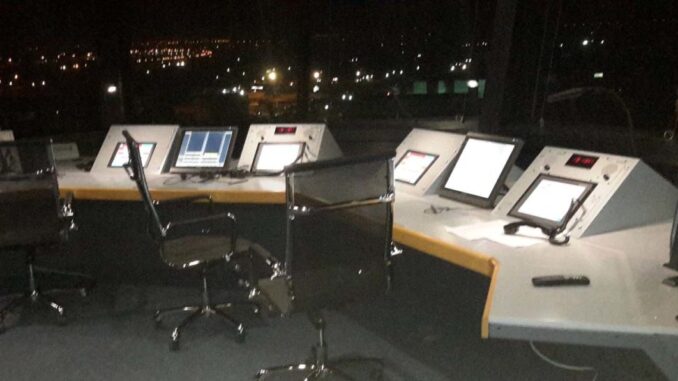
It does appear that the pervading problem of insecurity and common criminality are teaming up with the lack of maintenance culture to pose an avoidable danger to the Nigerian aviation sector. This much can be garnered from the concerns mounting over the safety of aircraft taking off and landing at the country’s airspace. On the one hand is the issue of obsolete facilities at the nation’s airports, which may have worsened going by alarm raised by the Nigeria Airspace Management Agency (NAMA). On the other hand is vandalism of its navigational aids. The twin problems pose embarrassment and danger to the safety of aircraft. The problems need to be addressed promptly by the authorities.
According to NAMA, the country’s airspace is now under serious threat as hoodlums have continued to vandalise navigational aids and assets across all its facilities. The agency’s Managing Director, Captain Fola Akinkuotu raised the alarm during a visit of the Senate Committee on Aviation to his office in Lagos. He said the agency was in dire need of protection of its navigational aids across the country, even as he solicited the immediate support of the National Assembly for the replacement of communication gadgets, which he said are now antiquated.
“It is unfortunate that the country didn’t foresee the current security challenges in some parts, especially Iju area of Lagos, which is one of the places where its equipment was vandalised and this development was capable of hampering air flight safety in the country,” Akinkuotu said. He emphasised that the agency was linking all its stations with the Information Communication Technology (ICT) and appealed for more funding.
Navigational aids are key components in aviation safety. Without adequate navigational aids in place to enhance flight operations, both the aircraft and the passengers would be at risk. It is akin to removing the ladder with which someone climbed up with no means of coming down, which could spell doom. If communication is poor, it increases the stress and reduces air safety.
The government and its relevant agencies should take a closer look into the problems of vandalism of aviation equipment and obsolete equipment. Aviation business is international, and facilities to aid the taking off, flying and landing of aircraft cannot be subjected to less than internationally acceptable standard. The nation is already aggrieved with recent air mishaps in the military, causes of which have not been unraveled; and cannot afford more air accidents. Let it not be that the authorities are waiting for disaster to occur before doing something.
The vandalism of navigational aids is an ill wind that blows no one any good. The authorities should do everything possible to prevent the incidences which, unfortunately goes beyond the aviation sector. Even on land, public utilities on bridges, roads and other strategic places are being daily taken to pieces, deliberately and otherwise, and no one is being punished. Mere lamentation of the ugly incidents is not enough. Government should move from rhetoric to concrete action to protect aviation facilities wherever they may be, and replace obsolete ones before they cause accidents.
Coming at a time when Nigeria’s aviation infrastructure deficit is huge, the country cannot afford to be confronted with the monster of vandalism of the available navigational aids, as that could force airlines to lose confidence in the safety of Nigeria’s airspace, as well as reduce travelers’ trust on the Nigerian aviation system.
From the airports and the installed facilities – some of which are obsolete – to the aircraft equipment handling, there is a yawning gap that needs to be filled. As it were, there is an absence of critical facilities that make for smooth aviation operations at the airports and this should worry the government. The aviation agency (NAMA) and of course the Federal Ministry of Aviation, should rise up to this challenge and prevent a worsening of the unwholesome aviation situation.
The sub-optimal situation at the airports is not unconnected with the general mismanagement of aviation in Nigeria, which is why basic equipment needed for hitch-free operations are lacking. For instance, experts say that ILS is clunky, very expensive and difficult to maintain, especially, given that it requires regular calibration and power supply, which Nigeria aviation can hardly meet.
That explains why Nigeria cannot go beyond CAT I in most of her ILS. Guaranteed regular power supply is critical for effective performance. As it were, Nigeria is CAT II capable but all of that have been downgraded to CAT I due to prevailing circumstances. Even CAT II ILS has its limitations. This is unlike the foreign airlines which have CAT III as their onboard standard and their personnel have been trained to land at zero-zero visibility.
Government should replace vandalised navigational equipment to ensure air safety operation. The Ministry of Aviation should not abdicate its responsibility to put all things in place to ensure safe air travel and aviation services.
END

Be the first to comment